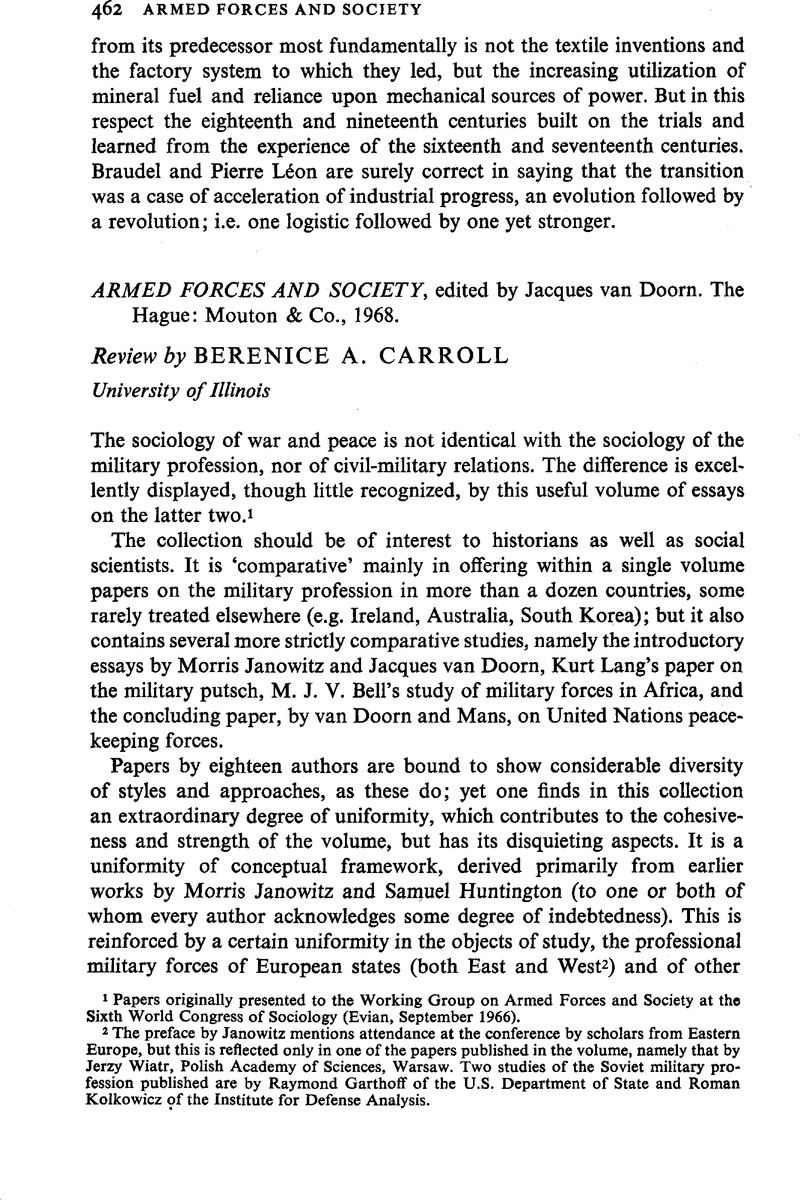No CrossRef data available.
Article contents
Armed Forces and Society
Published online by Cambridge University Press: 03 June 2009
Abstract

- Type
- Review Articles
- Information
- Copyright
- Copyright © Society for the Comparative Study of Society and History 1970
References
page 462 note 1 Papers originally presented to the Working Group on Armed Forces and Society at the Sixth World Congress of Sociology (Evian, September 1966).
page 462 note 2 The preface by Janowitz mentions attendance at the conference by scholars from Eastern Europe, but this is reflected only in one of the papers published in the volume, namely that by Jerzy Wiatr, Polish Academy of Sciences, Warsaw. Two studies of the Soviet military pro fession published are by Raymond Garthoff of the U.S. Department of State and Roman Kolkowicz of the Institute for Defense Analysis.
page 463 note 3 The justification for this omission appears to be a conviction, expressed most explicitly by van Doom, that ‘the fate of the popular army seems decided … The general tendency appears to be a progressive professionalization of the military, coupled with alienation from the people.’ But whatever the truth of this where national and revolutionary movements are successful in establishing themselves in power, it is clear that guerrilla forces and ‘people's armies’ are recurrent and important phenomena in the world today, and that they represent a significant aspect of the problem of‘armed forces and society’. What they represent, moreover, calls in question at least some parts of the conceptual framework within which the authors of this volume work.
page 464 note 4 Mosca, Gaetano, The Ruling Class, New York: McGraw-Hill, 1939, pp. 229, 468-9.Google Scholar
page 464 note 5 Ibid., p. 229.


